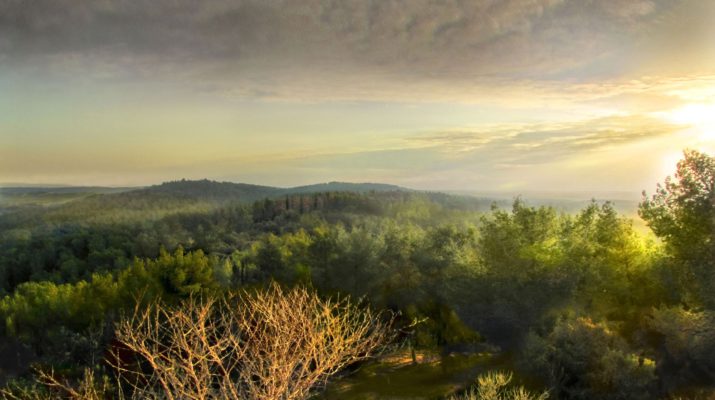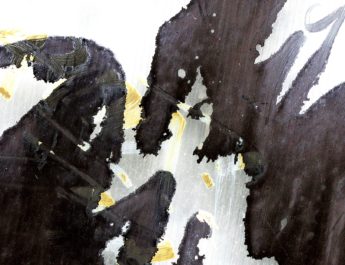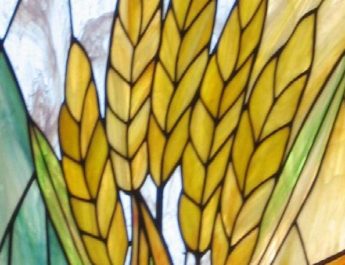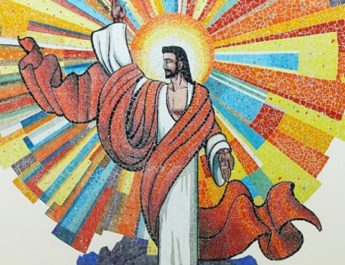Psalm 27:1-4
NL 229
Of David.A
1 The LordB is my lightC and my salvation;D
whom shall I fear?E
A “David” = david. From the same as dod (beloved, love, uncle); the root may mean to boil, which is used figuratively to describe love. So, this implies someone you love such as a friend, a lover, or a close family member like an uncle. David’s name likely means something like “beloved one.”
B “Lord” = YHVH. From havah (to be, become) or hayah (to come to pass, become, be). This is the name of the God of Israel, the self-existent and eternal one, the tetragrammaton. This pronunciation has been lost to time so “Lord” is generally used in its place.
C “light” = or. From or (to be or become light). This is light, sun, sunshine, dawn, or daylight. Figuratively, it can refer to light from instruction, light of a face (that is to say one that is cheerful or finds favor). It can refer to prosperity or salvation; a light that guides, a light eternal from Zion.
D “salvation” = yesha. From yasha (to deliver, defend, help, preserve, rescue, be safe. Properly, to be open, wide or free, which implies being safe. Used causatively, it means to free). This is salvation, deliverance, rescue, safety, welfare, liberty.
E “fear” = yare. This is to fear, be afraid, dreadful. It can also refer to fearful reverence – to fear in a moral sense is to say to revere, respect.
The Lord is the strongholdF of my life;G
of whom shall I be afraid?H
F “stronghold” = maoz. From uz (to run for refuge, to seek safety, be strong) OR from azaz (to be strong, become fixed, be bold, prevail, be impudent; to be stout literally or figuratively). This is a defense, refuge, safety, fortress, rock, strength, or stronghold. It is somewhere one goes to be safe and protected or something one uses to be safe. Figuratively, it could be a defense or a force.
G “life = chay. From chayah (to live or keep alive literally or figuratively). This is alive, living, lifetime. It can also be used to describe someone’s age. It can refer to animals, plants, water, or a company or congregation of people. It is life in a very broad sense.
H “be afraid” = pachad. To dread, be afraid, thrill, be in awe. This is properly feeling startled from a sudden sound or alarm and so, more generally, to be afraid.
2 When evildoersI assailJ me
to devourK my fleshL—
my adversariesM and foes—
they shall stumbleN and fall.
I “evildoers” = ra’a’. This is to be evil, bad, afflict. Properly, it means to spoil – to destroy by breaking into pieces. Figuratively, it is to cause something to be worthless. It is bad in a physical, social, or moral sense – something that displeases, does harm or mischief, punishes or vexes.
J “assail” = qarab. This is to come near, offer, make ready, approach, take.
K “devour” = akal. This is to eat, devour, burn up, or otherwise consume. It can be eating in a literal or figurative sense.
L “flesh” = sar. From basar (being a messenger, publish, carry preach; properly, this is being fresh, rosy or cheerful as one bearing news). This is flesh, a body, an individual, nakedness, humankind. It can also refer to male genitalia.
M “adversaries” = tsar. From tsarar (to bind, restrict, narrow, be cramped, an adversary). Properly, this is a narrow or constricted place. Figuratively, it can be trouble, a pebble, an enemy, anguish, or distress.
N “stumble” = kashal. This is to stumble, fail, be weak or decayed, be overthrown, to totter. It can refer to weak legs or ankles so it is falter, faint, or fall.
3 Though an armyO encampP against me,
my heartQ shall not fear;R
O “army” = machaneh. Related to “encamp” in v3. From chanah (see note P below). This is an encampment, whether of people traveling together or soldiers. So, it can be a camp band, or company as well as an army of soldiers. Also can be used of other groups like animals, angels or stars.
P “encamp” = chanah. This is decline, bending down, or living in tents. It can be camping to create a home or camping as a part of battle.
Q “heart” = leb. May be related to labab (to encourage; properly, to be encased as with fat; used in a good sense, this means to transport someone with love; used in a bad sense, it can mean to dull one’s senses). This is the heart, courage, one’s inner self, the mind, or the will. Heart is only used in a figurative sense in the Old and New Testaments.
R “fear” = yare. Same as “fear” in v1. See note E above.
though warS rise upT against me,
yet I will be confident.U
S “war” = milchamah. From lacham (to eat or feed on; figuratively, to battle as a kind of consumption/destruction). This is battle, war, fighting, or one who fights (i.e. a warrior).
T “rise up” = qum. To arise, stand, accomplish, establish, abide. This is rising as in rising against, getting up after being sick or asleep, arising from one state to another, becoming powerful, or rising for action. It can also be standing in a figurative sense.
U “be confident” = batach. This is to hide for refuge, be secure or sure. Figuratively, it refers to trust, being confident, or hoping.
4 One thing I askedV of the Lord,
that will I seekW after:
to liveX in the houseY of the Lord
all the days of my life,
V “asked” = shaal. This is to ask, inquire, beg, borrow, desire, request. It can also mean to demand.
W “seek” = baqash. This is to seek, ask, desire, or request. It can be any kind of searching. It can also mean to worship or pray – implies a striving for.
X “live” = yashab. This is to sit and so to remain and so to dwell. It is sitting for any reason – as a judge, in order to ambush, or just sitting quietly. Causatively, this can mean settling or marrying. This can also mean continue, endure, or establish.
Y “house” = bayit. Probably from banah (to build, make, set up, obtain children; to build literally or figuratively). This is house, court, family, palace, temple.
to beholdZ the beautyAA of the Lord,
and to inquireBB in his temple.CC
Z “behold” = chazah. This is to gaze at – to see or behold. It can also refer to perceiving as a mental process or looking at something with pleasure. It can be used particularly to mean seeing a vision.
AA “beauty” = noam. 7x in OT. From naem (to be pleasant, beautiful, sweet, or agreeable in a literal or figurative sense) This is pleasantness, beauty, favor, agreeableness, delight, splendor, or grace.
BB “inquire” = baqar. 7x in OT. This is to plow or break forth. Figuratively, it is to inquire, inspect, seek out, admire, or consider.
CC “temple” = hekal. Perhaps from yakol (to be able, endure, overcome, prevail). This is a large building with public access such as a palace or temple.
Image credit: “The Jerusalem Hills. Sunset” in Israel by Alexander Shchukin, 2010.




